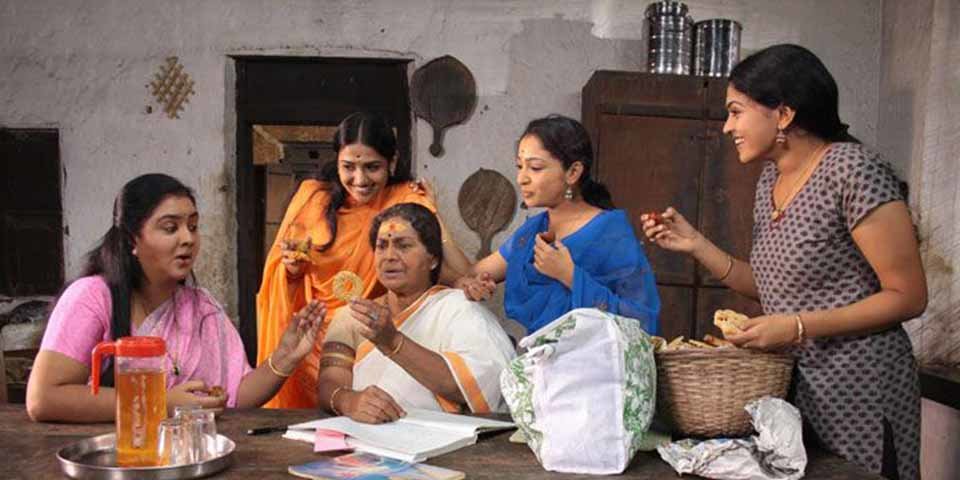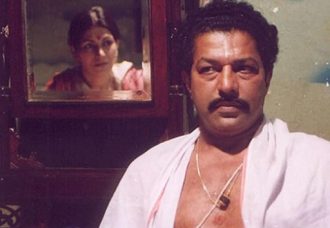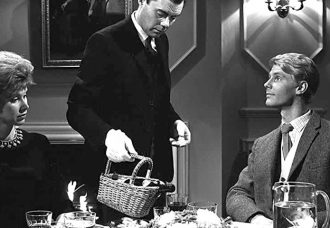The director’s baton is not a toy; before wielding it for the first time, one is required to learn, at least, the basic theories, and spend quality time gathering some amount of practical knowledge. Maharaja Talkies, with a premise of immense potential, fails miserably, chiefly because the plot and characters are still in the embryo stage; the dialogues are both unfunny and unreal; and the overall acting leaves much to be desired.
Four sisters in a small town inherit and run a movie house called ‘Maharaja Talkies’. Their adversaries, bent on closing down the place, throw up all kinds of problems for them. Thankfully, the eldest of the girls (Urvashi) has a very helpful friend, the newly-arrived panchayath secretary (Mukesh).
Though Urvashi, once again, dons a role she has perfected over time, she isn’t allowed a chance to showcase her prowess. Mukesh too is underutilized; his character ought to have been given some color and more screen time. The comedians come across as a pathetic lot, thanks, in particular, to the dialogues they have been asked to mouth. And the extras are stiff and overly conscious of themselves.
When an amateur cameraperson is perched atop a crane, there’s always the danger that they’ll make a mess of the images; true to form, some of the characters, even when they’re engaged in a normal chat, are shot at times, meaninglessly, from low, high, and canted angles.
The pace is, generally, sleepy like the old town; at one point, the editor wakes up and tries a fancy stunt, a cutaway, and ends up with a wrong time interval.
The masala insertions too produce a bad odor: the people involved in the ‘fight scene’ have no clue what to do; and the little children with their parents who came to see a family comic-drama probably fidgeted nervously in their seats forced to watch the hot ‘item number’.
The saving grace is the sounds-over that match the mood of the respective images; the pleasing, filling soundtrack; and the soothing number, Aaro Pinneyum, built on a nice, soft mix of western drums and bass, and Indian melody instruments.
In the hands of a much better writer/director, this could have been a film of substance, fresh as the rural backdrop, and touching upon the subject of strong women surviving in a traditional male bastion. Debutant Devidas Chelanat has missed a wonderful chance to take his audience for a memorable trip down the old filmic lanes.








